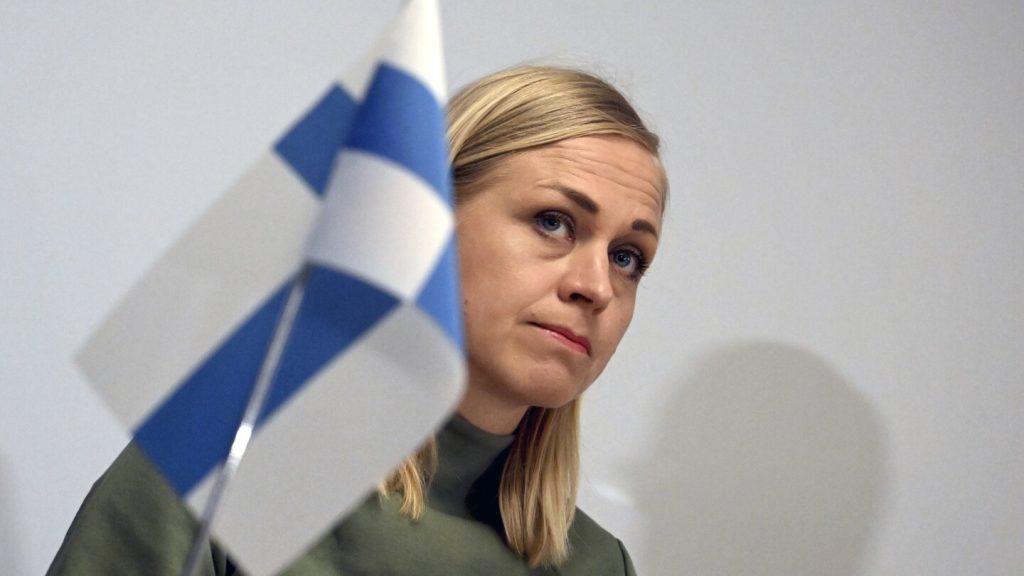Leaders around the Baltic Sea are reacting cautiously to reports that Russia may revise the borders of its territorial waters in the region. Lithuania’s foreign minister has called it an “obvious escalation” and emphasized the need for a firm response. The draft proposal from Russia’s Defense Ministry suggests updating the coordinates used to measure the strip of territorial waters off its mainland coast and islands in the Baltic Sea. The existing coordinates are based on outdated nautical navigation maps and do not correspond to the modern geographical situation. It is unclear if the proposed changes would shift the border or simply clarify it.
Swedish Prime Minister Ulf Kristersson highlighted that Russia is a signatory party to a United Nations convention that regulates border changes. Finland’s Foreign Minister Elina Valtonen stated that if Russia challenges the borders, it would violate the UN convention and face opposition from the international community. She also mentioned that the act is likely routine and not a provocation. Finnish President Alexander Stubb emphasized that Finland would handle the situation calmly and based on facts. Lithuania’s Foreign Minister Gabrielius Landsbergis accused Russia of spreading fear, uncertainty, and doubt about its intentions in the Baltic Sea, especially after the recent gains of Russian troops in northeastern Ukraine.
German Defense Minister Boris Pistorius, during his visit to Lithuania, echoed the concerns raised by Lithuanian officials and labeled Russia’s actions as examples of hybrid warfare practiced by Russian President Vladimir Putin. Lithuania summoned the Russian representative for a detailed explanation regarding the proposed changes to the territorial waters. Meanwhile, Russia’s Interfax news agency quoted an unnamed military diplomatic source stating that Moscow does not intend to revise the border or the width of its territorial waters. Kremlin spokesman Dmitry Peskov mentioned that the Defense Ministry’s proposal was not politically motivated but aimed at ensuring Russia’s security in the face of escalating tensions in the Baltic region.
Since Russia’s invasion of Ukraine in 2022, Finland and Sweden have joined NATO, leading to increased military presence in the Baltic Sea region. The Baltic Sea, which serves as Russia’s maritime access to St. Petersburg and the Kaliningrad enclave, is now surrounded by NATO members. Kaliningrad, situated between Lithuania and Poland, is home to the Russian Navy’s Baltic Fleet. The concerns regarding potential changes to Russia’s territorial waters come amidst heightened tensions in the region. While Russian officials have downplayed the proposal as a security measure, Baltic leaders remain vigilant and call for a unified and firm response to any perceived threats to their maritime boundaries.
Overall, the situation underscores the delicate geopolitical balance in the Baltic Sea region and the potential for escalation in the face of strategic moves by Russia. Baltic leaders are closely monitoring developments and emphasizing the importance of upholding international agreements and norms in maintaining stability and security in the region. The response from Russia and the subsequent reactions from neighboring countries will be crucial in determining the trajectory of the situation and the implications for regional security moving forward. As the Baltic Sea continues to be a focal point of geopolitical significance, any changes to maritime borders will have far-reaching consequences for the countries involved.


